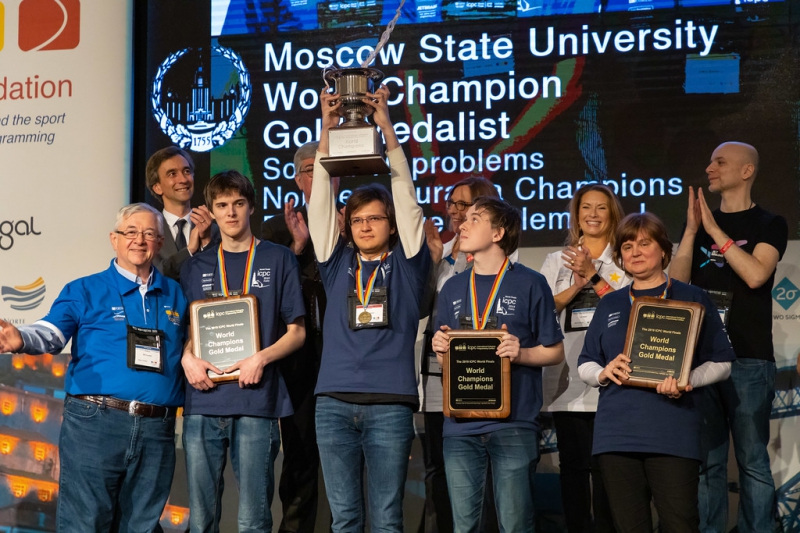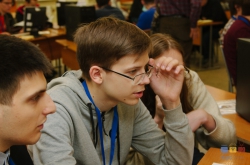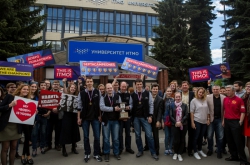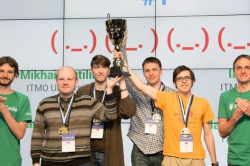With each year, the world’s largest and most prestigious contest in collegiate programming expands its geography and the number of participants. In the 2018-2019 season, 52,709 students from 3,233 universities of 110 countries competed with each other during the regional qualification stage. Among the participants of the final stage, 10 out of 135 teams represented Russian universities: Lomonosov Moscow State University, Moscow Institute of Physics and Technology, Moscow Aviation Institute, Higher School of Economics, ITMO University, St. Petersburg State University, Ural Federal University, Saratov State University, and Northern (Arctic) Federal University. The contest took place for the 43rd time and was hosted by the University of Porto.
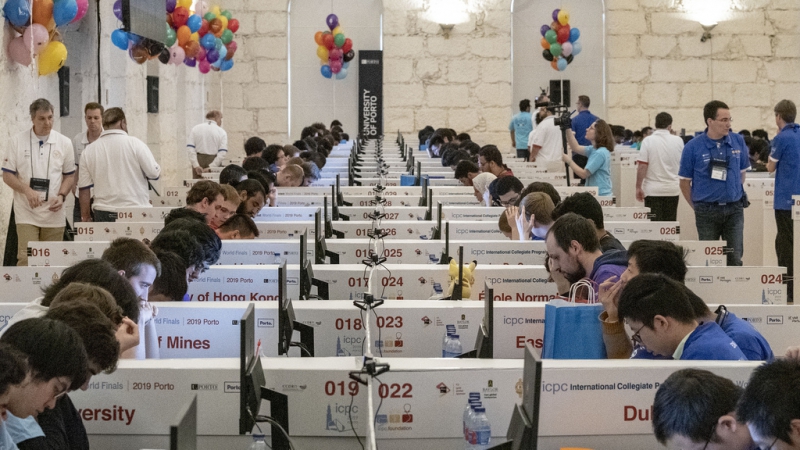
Between 2012 and 2017, the world cup was won by two St. Petersburg-based universities: ITMO University (four wins in the past six years) and St. Petersburg State University (two wins in the past six years). Last year’s contest brought recognition to another Russian “star” of the contest, the team from Lomonosov Moscow State University, who had previously never claimed the champion title, but won numerous gold medals (and taking the second place five times).
This year’s competition was truly global: among the top contestants were the teams from the Massachusetts Institute of Technology (MIT), Lomonosov Moscow State University, and the University of Tokyo. Among other top picks were also the representatives of the University of Warsaw, Moscow Institute of Physics and Technology (MIPT), and Nanjing University.
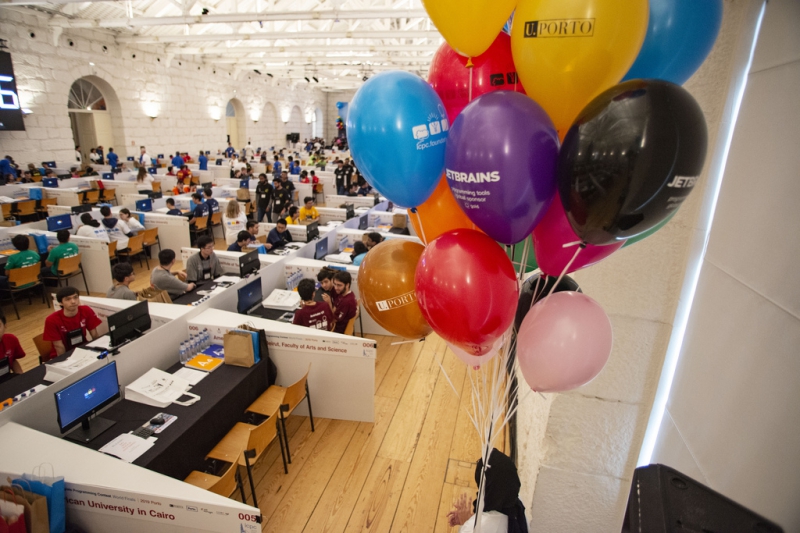
The team from University of Warsaw was the first to solve one of their problems and proceeded to stay at the top of the scoreboard for nearly the entirety of the event. The acting champions from Lomonosov Moscow State University broke into the top-3 from the very start and then stayed in second place. In the final hour of the contest, a heated competition played out between MSU, the University of Warsaw, MIT, and the University of Tokyo. In the end, the programmers from Russia were able to once again secure their title, having solved 10 out of 11 problems.
Just as last year, the Moscow State University was represented by Mikhail Ipatov, Vladislav Makeev, and Grigory Reznikov. As their coach Elena Andreeva noted, the key to her team’s success lies in the members’ differing specializations, as each student comes from a different faculty.
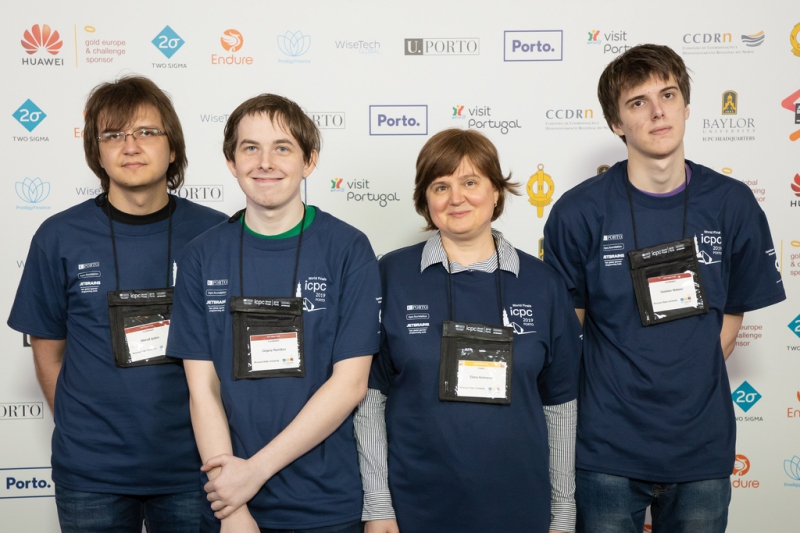
In second place was the team from MIT with nine solved problems, in third – the team of University of Tokyo, in fourth – the team from University of Warsaw.
One of the event’s main revelations was the team from North Korea, which had also joined the list of medal winners. The team from Kim Chaek University of Technology (Pyongyang) was awarded a silver medal. Russia was also represented among the winners by the Moscow Institute of Physics and Technology and Higher School of Economics (Moscow), who won bronze medals.
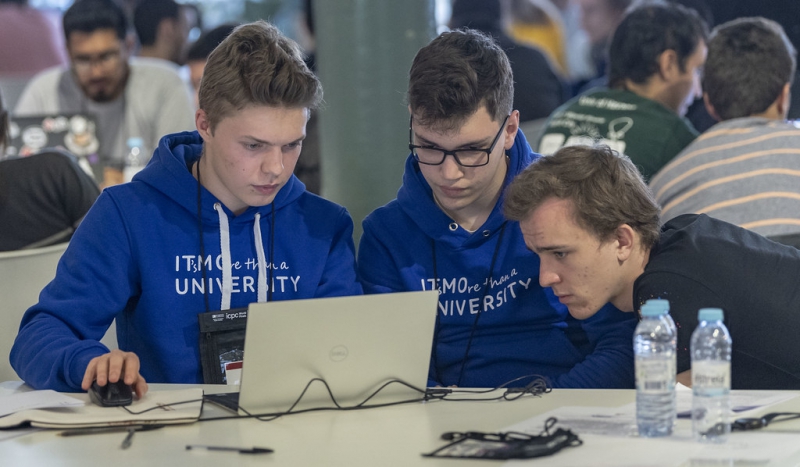
ITMO University’s team, which finished 17th, had come to Porto in a completely new line-up: this year the university was represented by Stanislav Naumov, a third-year bachelor student, Roman Korobkov, a first-year bachelor student, and Ilya Poduremennykh, a second-year bachelor student, who all come from the Information Technologies and Programming Faculty. As usual, the team is coached by Andrey Stankevich, an associate professor at the Information Technologies and Programming Faculty, who has served as the ITMO team’s coach for more than 15 years and trained several generations of programming champions.
A complete scoreboard of the 2019 contest can be seen here. A list of problems can be found here.
The International Collegiate Programming Contest is the world’s biggest and most prestigious collegiate programming contest, held annually since 1977. Up until 2017, it was held under the auspices of the Association for Computing Machinery (ACM); after 2017, it has been held by the ICPC Foundation. For a long time, the contest was exclusive to teams from the USA and Canada; later, it was made open to students from other countries.
In addition to a champions’ cup, the participants of ICPC compete for four sets of gold, silver, and bronze medals, which are given to the top 12 teams.
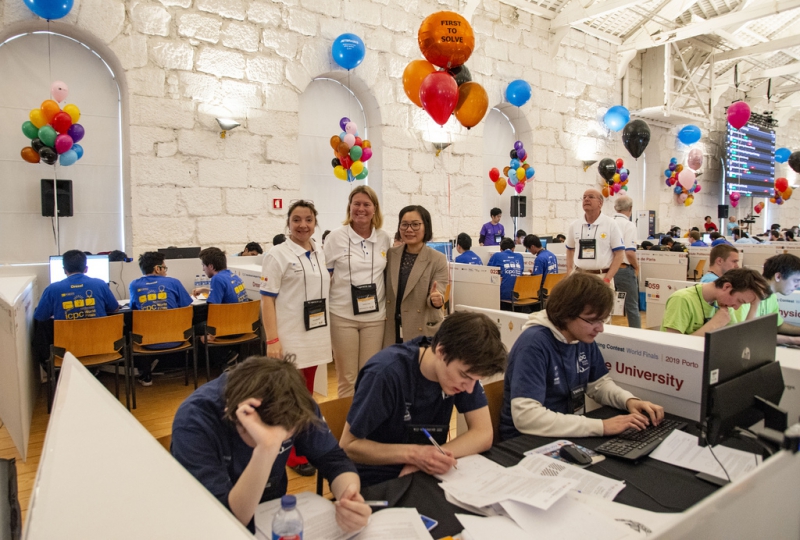
To get into the final stage, teams must first pass through several stages of regional competitions. Last year, ITMO University hosted the event’s semi-finals for the Northern Eurasia region, which included teams from the European and Ural regions of Russia, Belarus, and the Baltic countries.
According to the rules of the contest, each team can include no more than three student, all aged 25 and less. Two-time participants of the final stage cannot take part for a third time.
Each team is provided a single computer without access to the internet or any other external network. Students must demonstrate their teamwork skills, logic, and the ability to work under pressure. As the event’s organizers note, solutions to some of the problems only require attention and carefulness. Other problems, however, require in-depth knowledge of various algorithms.
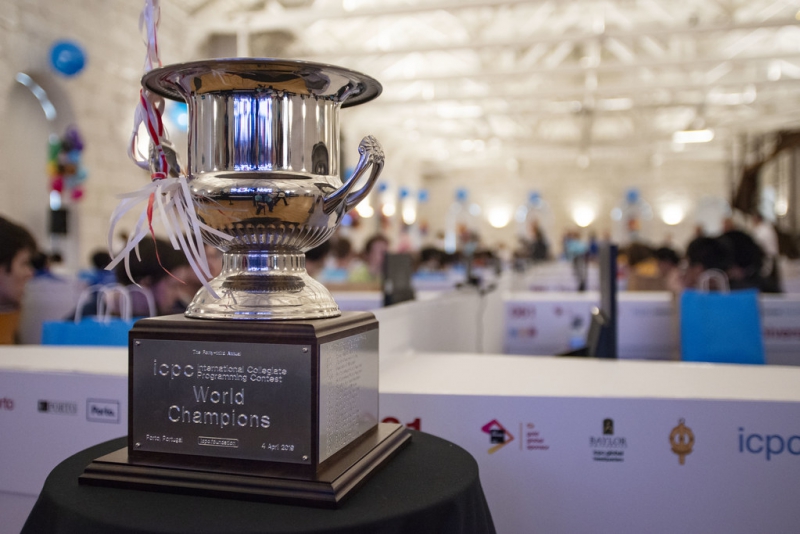
The solutions are checked in real time using tests prepared in advance by the jury, and graded according to their comprehensiveness, the time in which they were done, and the amount of attempts it took the team to solve a problem.
Russian teams have taken part in the event since 1993, and first competed in the final stage in 1996. In this time, Russian teams have won the champion’s title fourteen times, ITMO University being the only seven-time champion in the event’s 40-year history; this is twice as many as that of its closest competitors, including Stanford University, Shanghai Jiao Tong University, MIT, and other major universities. ITMO University has previously won the champion’s title in 2004, 2008, 2009, 2012, 2013, 2015, and 2017.
